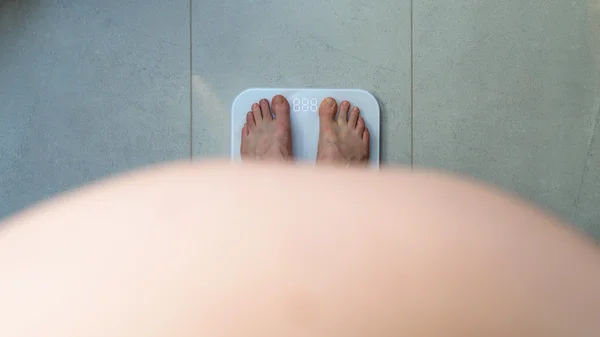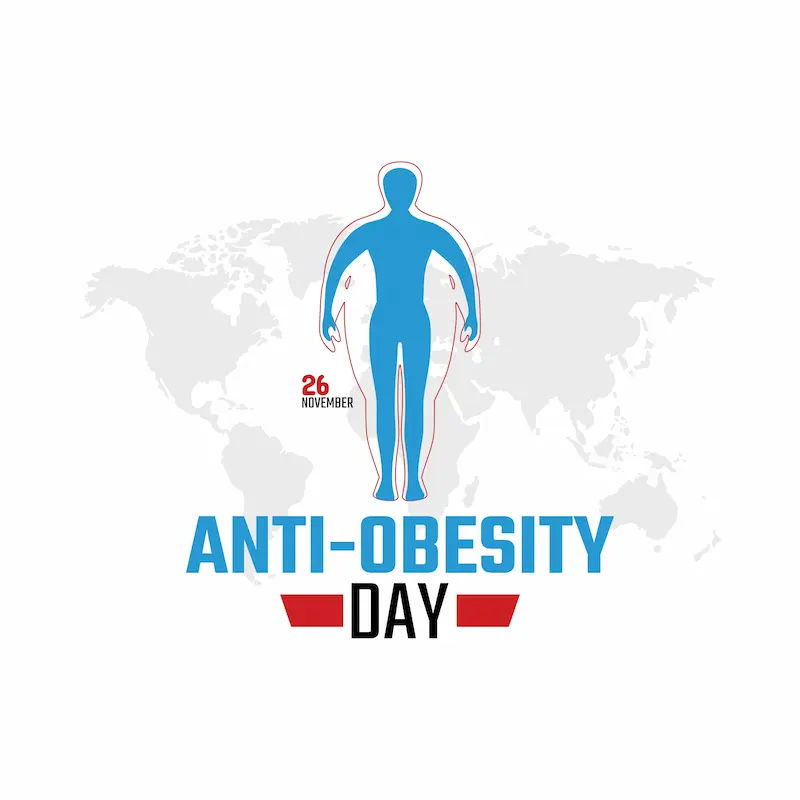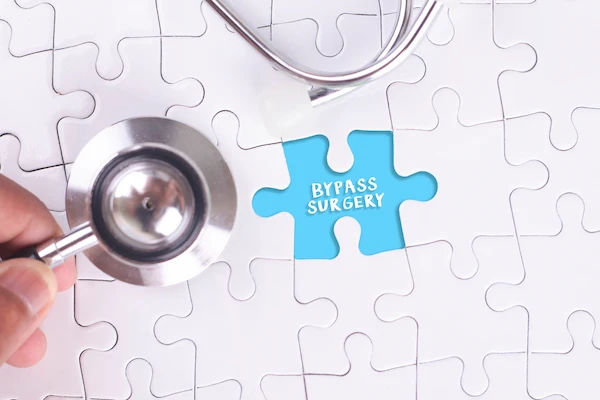Foods To Avoid After Gastric Bypass Surgery
Discover which foods to avoid after gastric bypass surgery and why. Learn how certain items can cause discomfort, dumping syndrome, or nutritional issues—and find healthy alternatives to support recovery.


Introduction
Gastric bypass surgery is a life-changing procedure that helps with significant weight loss by altering the digestive system. After surgery, your stomach becomes smaller, and food bypasses part of the small intestine, meaning your body absorbs fewer calories. While this helps in weight loss, it also means you must be very careful about what you eat to avoid discomfort, complications, and nutritional deficiencies.
In this article, we’ll discuss the foods you should avoid after gastric bypass surgery and why they can be harmful. We’ll also provide some helpful tips to make your post-surgery diet easier and healthier.
Why Is Diet Important After Gastric Bypass Surgery?
After gastric bypass surgery, your stomach can only hold a small amount of food. Eating the wrong foods can cause:
- Discomfort or pain due to stretching the stomach pouch
- Nausea and vomiting
- Dumping syndrome, a condition where food moves too quickly into the small intestine, causing dizziness, sweating, diarrhoea, and weakness
- Nutritional deficiencies, since your body absorbs fewer nutrients
To prevent these issues, you must follow a strict diet plan recommended by your doctor or dietitian.
Consult Top Specialists for Personalised Advice
Foods to Avoid After Gastric Bypass Surgery
Some foods are best avoided during recovery because they can stretch your stomach, cause blockages or trigger dumping syndrome.
1. Sugary Foods and Drinks
Why avoid? High-sugar foods can cause dumping syndrome, leading to nausea, diarrhoea, and weakness. They also provide empty calories without nutrition.
Examples to avoid:
- Sodas and sweetened beverages
- Candy, chocolates, and pastries
- Ice cream and milkshakes
- Sweetened cereals
Tip: Opt for sugar-free alternatives and natural sweeteners in moderation.
2. High-Fat and Fried Foods
Why avoid? Fatty foods are hard to digest and can lead to nausea, diarrhoea, and weight regain. They also increase the risk of gallstones.
Examples to avoid:
- Fried chicken, French fries, and chips
- Butter, cream, and heavy sauces
- Fatty cuts of meat like bacon or sausage
- Fast food and greasy snacks
Tip: Choose lean proteins like grilled chicken, fish, or tofu, and cook with healthy oils (olive oil) in small amounts.
3. Carbonated Drinks
Why avoid? Carbonation can stretch your stomach pouch, causing discomfort and bloating.
Examples to avoid:
- Soda, even diet versions
- Sparkling water
- Beer and fizzy drinks
Tip: Stick to still water, herbal teas, or diluted sugar-free juices.
4. Tough or Dry Meats
Why avoid? Hard-to-chew meats can get stuck in your smaller stomach, leading to discomfort or blockages.
Examples to avoid:
- Steak, pork chops, and jerky
- Dry chicken or turkey breast
Tip: Choose tender, moist meats like ground turkey, shredded chicken, or fish.
5. Bread, Pasta, and Rice
Why avoid? Starchy foods can expand in your stomach, causing bloating and discomfort. They may also turn into sugar, leading to dumping syndrome.
Examples to avoid:
- White bread and rolls
- Pasta and noodles
- White rice
Tip: If you crave grains, opt for small portions of whole grains like quinoa or oats, but chew thoroughly.
6. Raw Vegetables and Fruits with Skin
Why avoid? Raw veggies and fruits with skins can be hard to digest and may cause blockages.
Examples to avoid:
- Raw broccoli, cauliflower, and cabbage
- Corn, hard to digest
- Apples and pears with skin
Tip: Cook vegetables until soft and peel fruits before eating.
7. Dairy (Initially After Surgery)
Why avoid? Some people develop temporary lactose intolerance after surgery, leading to bloating and diarrhoea.
Examples to avoid (initially):
Milk, ice cream, and creamy cheeses
Tip: Try lactose-free milk or small amounts of yoghurt once your doctor approves.
8. Alcohol
Why avoid? Alcohol is high in empty calories, can irritate your stomach, and is absorbed faster after surgery, increasing intoxication risk.
Tip: Avoid alcohol for at least 6–12 months post-surgery, and always consult your doctor before reintroducing it.
Healthy Eating Tips After Gastric Bypass Surgery
Following a few simple habits may help you stay comfortable and healthy as you recover.
1. Eat Small, Frequent Meals – Your stomach can only handle small portions, so eat 5–6 small meals a day.
2. Chew Thoroughly – This helps prevent blockages and improves digestion.
3. Prioritise Protein – Protein helps with healing and muscle maintenance. Include lean meats, eggs, and beans.
4. Stay Hydrated – Drink water throughout the day, but avoid drinking 30 minutes before or after meals to prevent stomach stretching.
5. Take Supplements – You may need vitamins (B12, iron, calcium) to prevent deficiencies.
When to Seek Help?
If you experience severe pain, persistent vomiting, diarrhoea, or signs of dumping syndrome frequently, consult your doctor immediately.
If you’ve recently had gastric bypass surgery and need help with meal planning, Apollo 24|7 offers expert nutritionist consultations. You can also book follow-up tests to monitor your nutrient levels.
Final Thoughts
Recovering from gastric bypass surgery requires careful attention to your diet every day. By avoiding certain foods and choosing healthier alternatives, you may prevent discomfort and support your weight loss goals more safely.
If you need help planning your meals or want advice from a professional, book a consultation with an Apollo 24|7 nutrition expert today and take your next step towards better health.
Consult Top Dieticians
Consult Top Dieticians

Dr Venkata Naga Sai Tribhushan Rambhatla
General Physician
3 Years • MBBS
Bengaluru
PRESTIGE SHANTHINIKETAN - SOCIETY CLINIC, Bengaluru

Ms. Sushma Jaiswal
Dietician
42 Years • M.Sc.(Food & Nutrition)
Bengaluru
Swasthya Nutrition, Bengaluru

Ms Malabika Datta
Dietician
19 Years • Bsc (Clinical Nutrition & Dietetics), Msc (Dietetics & Food Service Management)
Kolkata
Malabika’s Diet Clinic, Kolkata

Ms. Neelanjana J
Dietician
5 Years • Bsc., Msc. Nutrition and Dietetics specialised general weight management, PCOS/PCOD weight loss and Diabetes management. A clinical dietitian with 4+ year experience specializing in evidence-based, result-oriented nutrition therapy. I have extensive experience in weight loss, thyroid management, PCOD/PCOS, weight gain, and diabetes & prediabetes care. My approach is personalized, practical, and sustainable—focusing on helping individuals achieve long-term lifestyle change rather than quick fixes. I work closely with clients to understand their medical history, lifestyle, and goals, and then design customized diet plans that support hormonal balance, metabolic health, and overall wellbeing. My goal is to make nutrition simple, realistic, and effective—so you see measurable results and feel your healthiest self.Auther in Health benefits of jackfruit (Artocarpus heterophyllus Lam.) seeds: A review (2023) The Pharma Innovation Journal Co- Auther in Malnutrition in Women: A review (2023) The Pharma Innovation Journal. Highfield Level 3 in HACCP. Highfield Level 4 International Award in Food Safety Managment
Bengaluru
Apollo Clinic, JP nagar, Bengaluru

Ms. Suhita Sinha
Dietician
8 Years • BSC Food & Nutrition
Kolkata
Chikitsa Medicare Centre Pvt. Ltd.Sattelite Centre Behala Chowrasta, Kolkata
Consult Top Specialists for Personalised Advice

Dr Venkata Naga Sai Tribhushan Rambhatla
General Physician
3 Years • MBBS
Bengaluru
PRESTIGE SHANTHINIKETAN - SOCIETY CLINIC, Bengaluru

Ms. Sushma Jaiswal
Dietician
42 Years • M.Sc.(Food & Nutrition)
Bengaluru
Swasthya Nutrition, Bengaluru

Ms Malabika Datta
Dietician
19 Years • Bsc (Clinical Nutrition & Dietetics), Msc (Dietetics & Food Service Management)
Kolkata
Malabika’s Diet Clinic, Kolkata

Ms. Neelanjana J
Dietician
5 Years • Bsc., Msc. Nutrition and Dietetics specialised general weight management, PCOS/PCOD weight loss and Diabetes management. A clinical dietitian with 4+ year experience specializing in evidence-based, result-oriented nutrition therapy. I have extensive experience in weight loss, thyroid management, PCOD/PCOS, weight gain, and diabetes & prediabetes care. My approach is personalized, practical, and sustainable—focusing on helping individuals achieve long-term lifestyle change rather than quick fixes. I work closely with clients to understand their medical history, lifestyle, and goals, and then design customized diet plans that support hormonal balance, metabolic health, and overall wellbeing. My goal is to make nutrition simple, realistic, and effective—so you see measurable results and feel your healthiest self.Auther in Health benefits of jackfruit (Artocarpus heterophyllus Lam.) seeds: A review (2023) The Pharma Innovation Journal Co- Auther in Malnutrition in Women: A review (2023) The Pharma Innovation Journal. Highfield Level 3 in HACCP. Highfield Level 4 International Award in Food Safety Managment
Bengaluru
Apollo Clinic, JP nagar, Bengaluru

Ms. Suhita Sinha
Dietician
8 Years • BSC Food & Nutrition
Kolkata
Chikitsa Medicare Centre Pvt. Ltd.Sattelite Centre Behala Chowrasta, Kolkata




